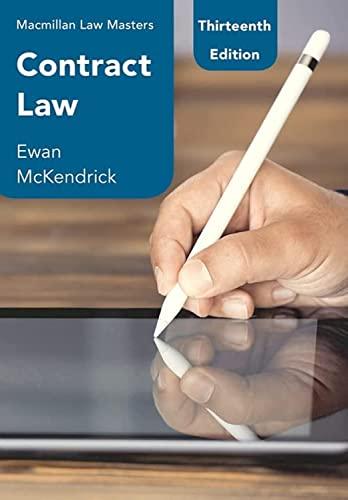Assignment
a) The outcome arising from adjudication methods, ie arbitration or judicial settlement by the PCA and ICJ respectively, is final and binding upon the parties, whereas this is not the case with diplomatic methods b) The diplomatic methods are pursued upon the consent of the parties to the dispute, whereas the adjudication methods do not c) The diplomatic means lead to a final settlement of the dispute, whereas this is not the case with the adjudication methods d) The adjudication methods of dispute settlement are pursued only in respect of significant disputes, whereas the political means are employed in all disputes. 36. Are States under any obligation when they conduct negotiations? a) States are under an obligation so to conduct themselves that the negotiations are meaning ful. b) States are under no obligation as to how they conduct their negotiation. c) States are under an obligation to find a solution of the dispute whenever they conduct negotiations. d)States are under an obligation to inform the UN Secretary-General about the progress of their negotiations. 37. What is the difference between conciliation and mediation? a) Conciliation is the continuation of mediation with the difference that conciliation produces a binding result, while mediation not. b) Conciliation is conducted exclusively by representatives of the UN Secretary- General, while mediation may also be conducted by third States' officials. c) Mediation is usually conducted by a person appointed with the consent of the parties, while conciliation involves a commission, which proceeds to an impartial examination of the dispute and proposes settlement terms. d) Conciliation is a method of dispute settlement pursued only by virtue of a treaty, while mediation may also be on an ad hoc basis. 38. What is the judge ad hoc? a) If a party to a contentious case before the ICJ does not have a national sitting as judge, it is entitled to nominate someone as a judge solely for that case, with the title of judge ad hoc. b) Judge ad hoc is the member of the bench of the ICJ with a casting vote. c) Judge ad hoc is a surrogate judge; in case a judge is disqualified or passes away. d) Judge ad hoc is the judge that each party will always nominate in every contentious case. 39. The following are vitiating factors to a contract except, a) Mistake Doc. No.: EXM/F/03 Page No.: 7/2 Issue No.: 1 Last Update: 15/04/15 Revision No.: 1.1 Date: 12/04/06 Author: EC Approved: Provost b) Illegality c) Duress d) Warranty 40. The following are interests protected under tort law except, a) Personal Security b) Interest in property c) Duress d) Reputation and privacy







